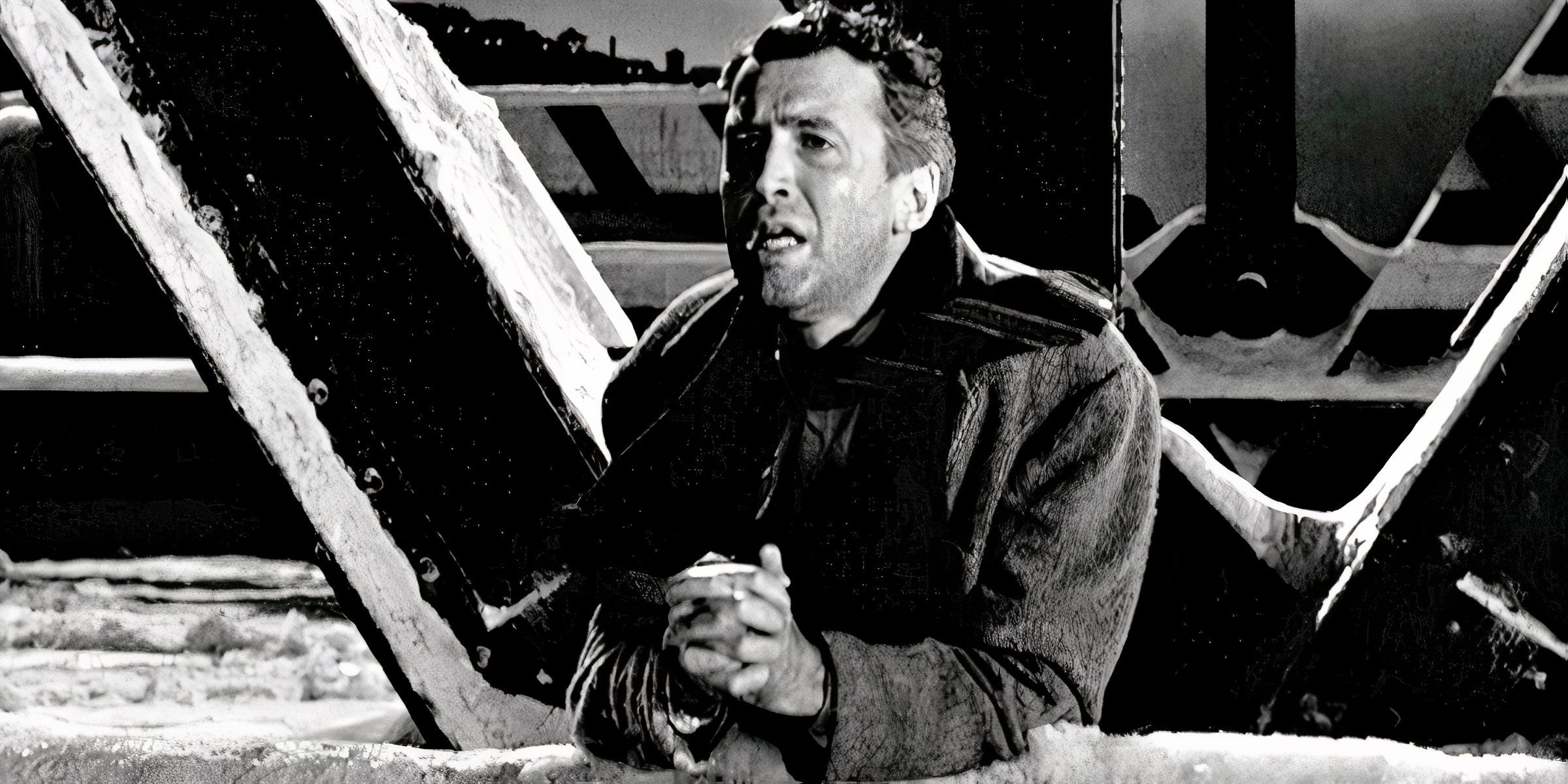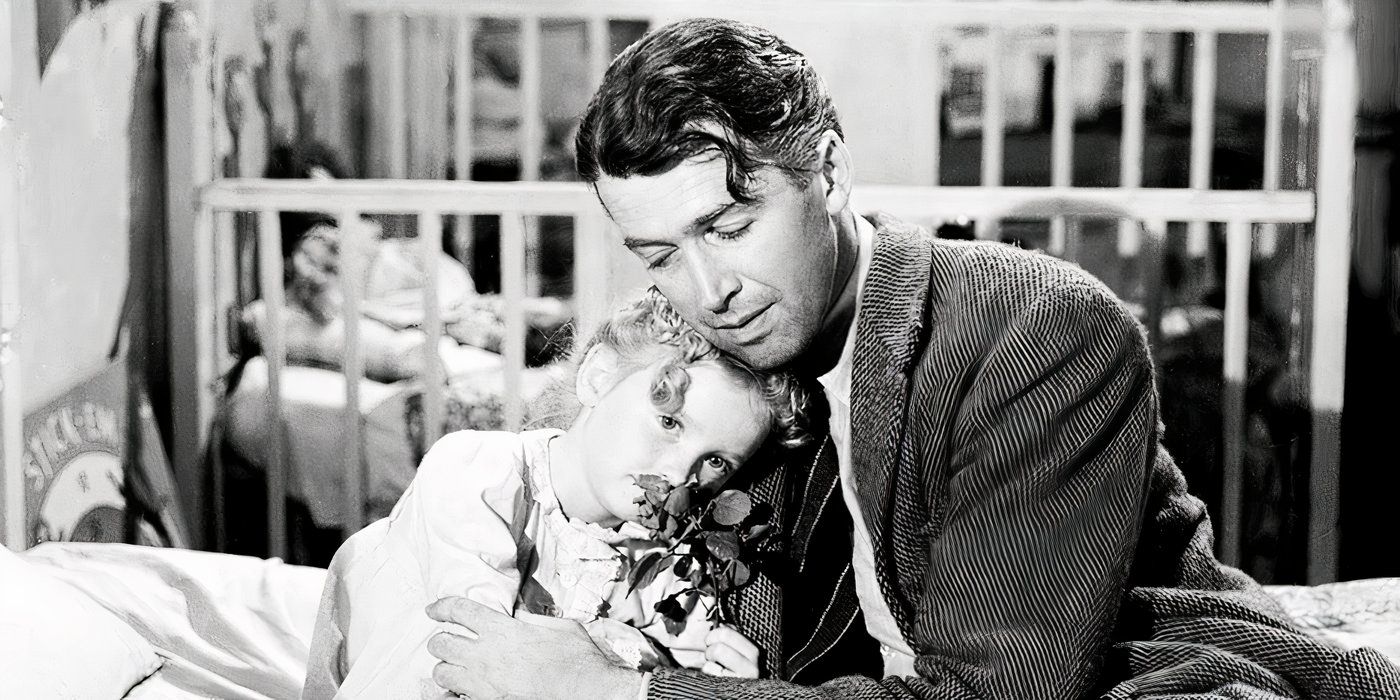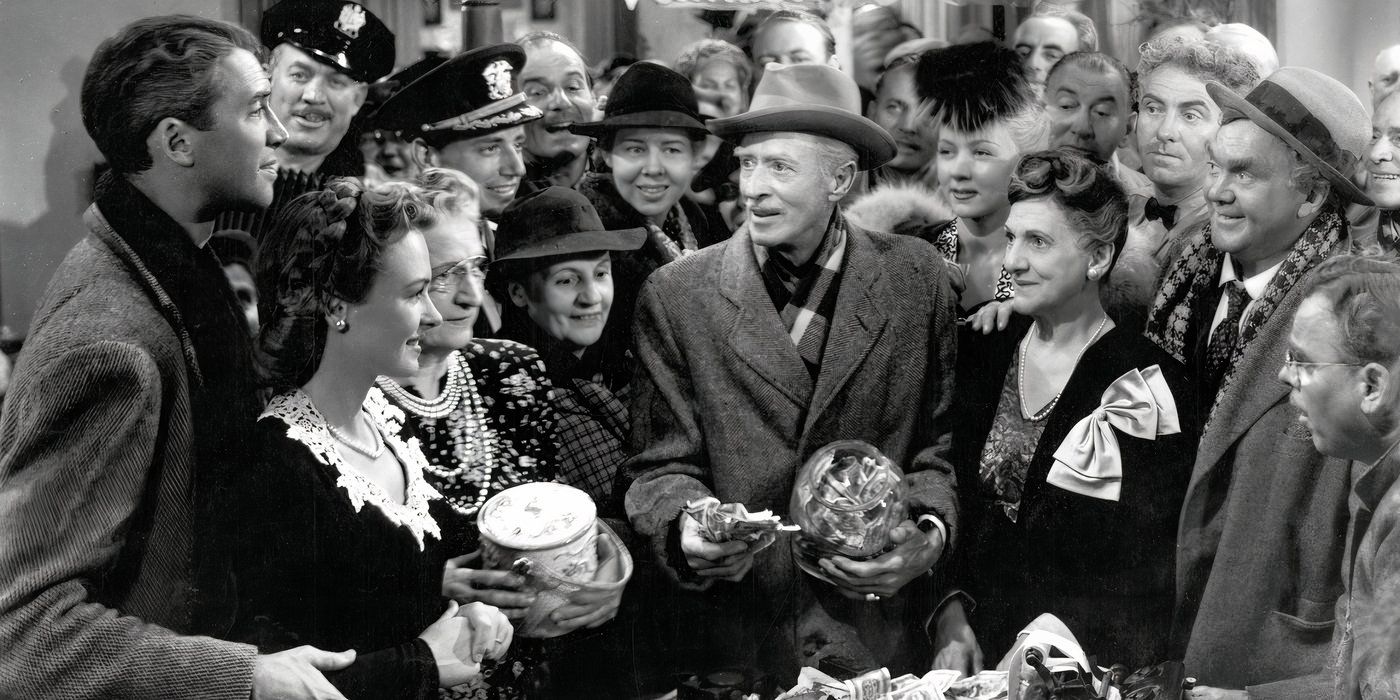
Any examination of It's a wonderful life is not complete without acknowledging the fact that contemporary reviews were far from universally positive and that they caused RKO Films a loss of over $500,000. Mocked by some for its sentimentality and simplistic ideas, Frank Capra's masterpiece has grown in stature and appreciation in the decades since its release, to the point that this context seems downright baffling. You can't force good taste, I guess.
Repeated endlessly at Christmas over the years, It's a wonderful life is returning to theaters nearly 80 years after its release, as if anyone needed an excuse to watch it again. It has earned its place as one of the greatest Christmas films of all time, even though Capra never really aspired to that specific achievement. He wanted it to be a celebration of life and he achieved it in a way he certainly never could have predicted.
Rewatching It's a wonderful life it's ingrained beyond just being a holiday tradition; a kind of spiritually habitual process, and as philosophical messages go, its positive affirmation seems appropriate for this time of year. Not to be romantic, but if you're looking for a mirror to hold up to the best parts of humanity, you could do a lot worse than Jimmy Stewart.
Frank Capra's classic Christmas film tells the story of George Bailey, a small-town family man and businessman who, after a series of personal and business losses, attempts to jump off a bridge on Christmas Eve. Bailey is stopped before jumping by Clarence, an angel who wants to show him the impact he has had on the people around him in order to stop him from killing himself. Jimmy Stewart stars as George Bailey, with another cast including Donna Reed, Lionel Barrymore and Henry Travers.
- Release date
-
January 7, 1947
- Execution time
-
130 minutes
- Cast
-
James Stewart, Thomas Mitchell, Lionel Barrymore, Donna Reed, Henry Travers
- Director
-
Frank Capra
The world's love affair with It's a wonderful life is magical in itself: it's not the most profound film ever made, nor the most technically impressive - it simply deals with immutable truths, and does so in a way that balances sentimentality with a kind of cautious pessimism about the reality of existence. More populist and contemporary readings would suggest that George Bailey is trapped in a chocolate box nightmare, destined to come to terms with his personal tragedy for the greater good, and there is some merit in not mocking this. Why leave It's a wonderful life Its lasting appeal depends on how much it is a product of its time while also being so universal.
The message of a wonderful life is the greatest comfort
Come for the joy, stay for the profound message
Both its surprisingly complex development and its history, It's a wonderful life it was defined by conflict. When it was released, the world was still recovering from the wounds of World War II, and star Jimmy Stewart brought his own experiences of the war to his performance. That's why, under all the shine of sentimentalism It's a wonderful life end, it seems quite cruelto the point that until George's epiphany, the title seems sarcastic. George lives for other people, sacrifices his dreams and his freedom for the good of others, and is rewarded for his altruism with the threat of bankruptcy and prison.
While there is definitely a cynical reading that George is finally convinced that the hell that drives him to almost kill himself is actually not so bad through the exploitation of his good nature, George's idealism does not merit cynicism. He was brought back from the abyss by his true sense of goodness and is willing to rot in prison because he feels convinced he has done enough. That he was enough.
And by modern standards, her existence may seem meager, but her happiness is one of those easily accessible revelations that makes the audience feel something good about humanity. And there is absolutely no doubt about it the combination of Capra's narrative and Stewart's performance manages to fool the audience. The fact that they continue to do so 80 years later is an impressive achievement that goes completely unnoticed in the rewatch habit.
It's a wonderful performance by Jimmy Stewart, more like
The supporting cast is great, but it could also be a one-man show
It's a wonderful life It shouldn't feel as personal as it does: is a 1946 film about a practically extinct industry in a small town that belongs only to memory or in black and white on the screen. People talk, dress and interact very differently. And yet there is a persistent universality to Mr. Potter's (Lionel Barrymore) despicable exploitation and George's desperation. His struggles with identity, self-realization, and feeling completely isolated despite his "richness" of love and friendship, he seems to belong as much to the social media melancholics as to the post-war make-believe.
Stewart obviously drives the entire film. Watching it now, you can trace every single best performance by Tom Hanks, or Denzel Washington, or any actor gifted with emotion and disarming charm. The timeless feel of the performance comes thanks to Capra's bold embrace of darker themes and the fact that George is far from a perfect hero.. He is prone to outbursts, conflicted with his altruism, and at times is as vulnerable as a raw nerve. He is human: a quality so often forgotten in the world of theatrical exaggeration.
George is also a double act, because Stewart is able to switch effortlessly between his intoxicating charm and his frightening vulnerability: and you get an immediate sense of why he's reached the point of despair he has. The personal feeling of his story means that when he sinks to his lowest level, the audience sits alongside him in the same terrible sadness, and when he finally receives his joy, we sit on his shoulders. He is, and always will be, one of my favorite actors in this.
There are also very good supporting performances, which should not be forgotten. Barrymore's Mr. Potter is an impressively convincing monster who remains just the right side of caricature; Donna Reed's Mary is entirely believable as the object of George's all-encompassing adoration; Thomas Mitchell deserves a lot of praise for his clumsy Uncle Billy; and Henry Travers is so good as Clarence that it's very easy to forget how little he actually participates..
I purposely pause to pay tribute to these supportive figures, because it's all so easy with It's a wonderful life be blinded by Stewart's excellence just as the uplifting ending steals focus from much of what comes before. In fact, that's partly why watching it again is so rewarding; you can remember the smaller moments and the flashes of joy and drama that aren't directly tied to George's final reveal. The moon scene is one of my favorite romantic scenes ever made, for example, and the calamitous school dance is wonderful, despite how clearly middle-aged Stewart is in favor of it.
We should be more grateful because now it's a wonderful life
Fasten your seatbelts, it's going to get heavy
I promised it wouldn't be romantic It's a wonderful lifeBut you know what, I take back what I said. We need films like It's a wonderful life. We need them for lasting quotes about ringing bells, promising love interests to the moon, and running through the streets screaming with joyful abandon. We need them for their comfort and revelations, and for the challenge they offer to modern sensibilities.
George's epiphany that he has shaped and saved so many lives, often through simple acts of connection so slight that he doesn't realize their importance, resonates strongly in the film. While the film's depiction of bankers' greed and wholesome altruism was enough to inspire the FBI to intervene with spurious accusations of communism, in a world marked by personal fulfillment and the relentless pursuit of milestones at the expense of kinder communal aspirations, George Bailey may very well be the greatest hero in Hollywood history.
If someone were making such a clever allegory for the modern world's instant gratification fetishism and the contradiction of hyperconnectivity and the loneliness epidemic, they would make a fake world modeled on It's a wonderful life for a Swiftian morality tale. It's a gargantuan achievement, capable of making you cry after countless wakes, making you connect in new ways as you age, and making you teeter on the brink of existential crises, not unlike the tone of this review. It's okay, I'm fine, it's a wonderful life.
- Jimmy Stewart's performance is perfect.
- The message, even 80 years later, connects on a spiritual level.
- The balance between sentimentality and darkness is masterful.
- Avoid the colored version.

